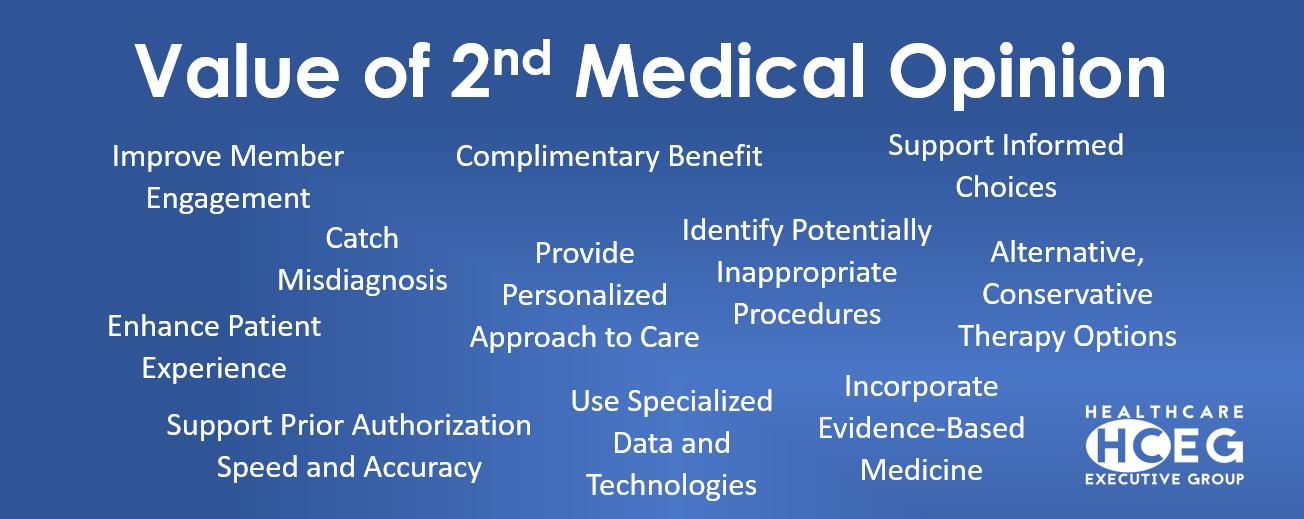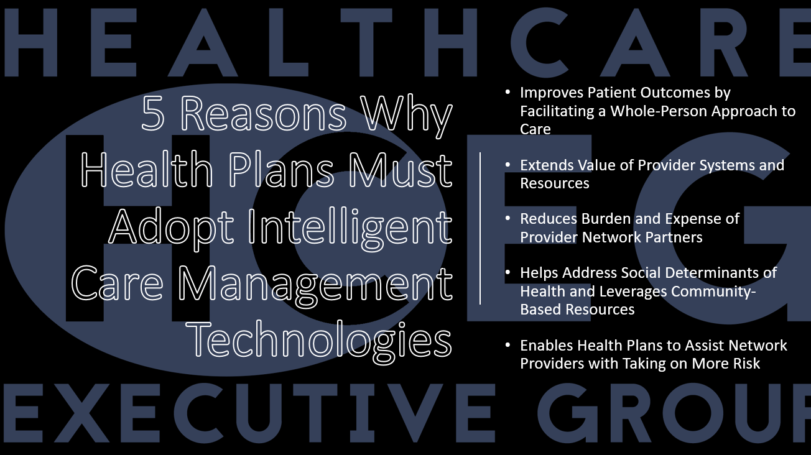
There are many reasons why an individual may want to obtain a second opinion on a diagnosis made or to confirm a particular medical procedure suggested or ordered by a physician. Likewise, there are many reasons why health plans and employer groups may want to support their members and employees in obtaining a second medical opinion. Regardless of the reasons, the overarching goal for obtaining a second medical opinion should be assisting health plan members and company employees with obtaining the best possible medical outcome at the lowest overall cost in the most expeditious, hassle-free manner possible.
Reasons to Support a Second Opinion as a Member Benefit
The following are key reasons why health plans and employer groups should support their members and employees with obtaining a second opinion.
- Increases the quality of care and lowers costs associated with overutilization by incorporating an objective clinical review using evidence-based medicine.
- Provides additional informed choices from other medical experts.
- May incorporate specialized data and technologies that can provide a better clinical outcome.
- Provides the individual with a more personalized approach to care.
- Serves as a complimentary benefit to the individual that empowers the individual to make decisions in their own personal “best interest.”
- Serves as an objective review void of any personal incentive to the reviewing physician beyond providing the best medical advice possible.
- Increases the speed and accuracy of prior authorization requests via a digital, evidence-based healthcare platform.
- Potential cost savings for the patient, plan, and providers via comprehensive member education, virtual consults, and alternative, conservative therapy options, and other treatment choices.
- May alleviate physician shortages so that specialists are providing care to those that really need care – not overtreating or providing costly but low-value care.
Key Considerations for Selecting a Second Opinion Provider
Health plans and employer groups considering the use of an organization providing second opinions should consider the following:
Support Services Across Wide Range of Medical and Surgical Specialties
Organizations providing second opinion services should have a large network of physicians and health reviewers able to provide coverage across key specialties – not just the Big Four (cancer, heart disease, diabetes, and lung disease).
Offer Patient Education and Suggest Alternative Treatment Options
Where applicable, second opinion providers should offer patient education about their condition and alternative, conservative therapy options and other treatment choices.
Ability to Scale, Securely Process, and Store Health Information
Second opinion providers must be able to scale their service volumes using a digital platform capable of effective stakeholder interaction and efficiently processing large volumes of medical data in a secure, HIPAA-compliant environment.
Provide a Rapid Turnaround Time
A rapid turnaround from the time all medical documentation is received to the time the second opinion is provided is critical – particularly in regard to plan member, employee, and patient experience.
Return on Investment Including Improved Member Satisfaction Ratings
Second opinion providers should provide benchmarking analytics and information substantiating the return on investment of their second opinion program. Additionally, the organization should be able to assist with providing data to support quality measures like Star Ratings.
Learning More About the Value of Supporting Second Opinions
To learn more about the value of supporting second opinions for health plan members and employees, check out this recording of the HCEG Webinar Series Event: Using Virtual 2nd Opinions to Increase Member Engagement and Decrease Healthcare Costs.
In this webinar presented by Medical Review Institute of America (MRIoA) on Thursday, October 14, 2021, information on supporting second opinions for plan members and employees and other considerations including the following were shared:
- How using second opinions can optimize medications and positively impact member health at lower overall cost
- Understanding the risks and recovery implications with respect to the initial diagnosis and alternative treatments
- How health plans and self-insured employers can save money by offering virtual second opinions for high-cost/high-risk procedures






